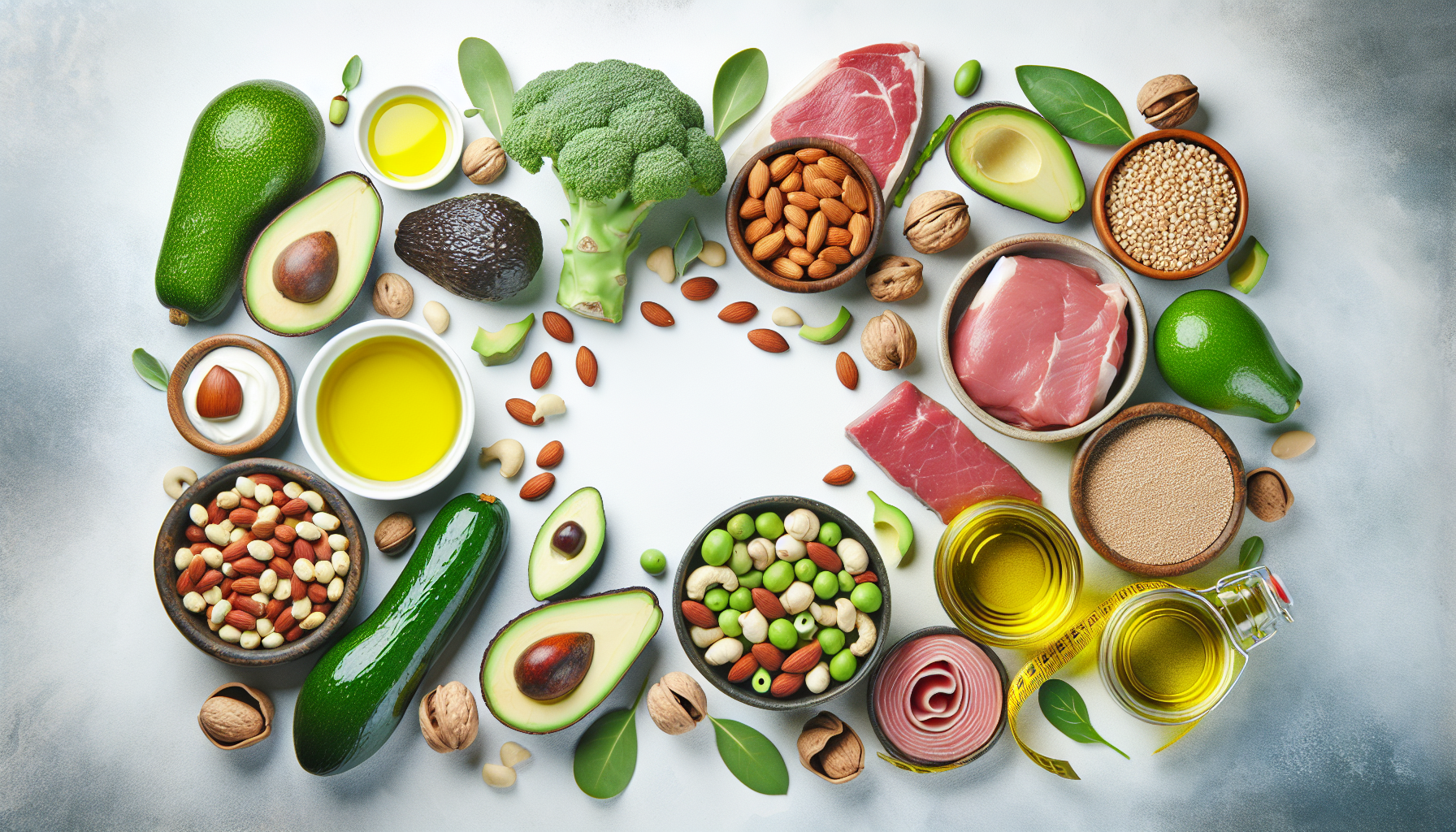Embarking on a low carb diet can feel like a fresh start for your health and well-being, especially when it comes to managing your cholesterol levels. With a growing body of research suggesting a link between carbohydrate intake and cardiovascular health, your curiosity may lead you to ponder the impact of such a diet on your body’s cholesterol. This article will explore the intriguing relationship between embracing a low carb lifestyle and its potential effects on your cholesterol, offering insights that could be integral to crafting a diet that supports your heart health and overall wellness.
Understanding Cholesterol
When you hear the word “cholesterol,” you might immediately think of heart health. It’s important to grasp what cholesterol is and how it functions in your body to fully understand its impact on your wellbeing.
Different Types of Cholesterol
Cholesterol comes in several types, but there are two you should particularly be aware of: low-density lipoprotein (LDL) and high-density lipoprotein (HDL). In common parlance, LDL is often called “bad” cholesterol because it can lead to the buildup of plaque in your arteries, while HDL is known as “good” cholesterol because it helps remove other forms of cholesterol from your bloodstream.
Functions of Cholesterol in the Body
Despite its bad reputation, cholesterol plays several vital roles in your body. It helps build the structure of cell membranes, aids in the production of certain hormones, assists in fat digestion by forming bile, and it enables your body to synthesize vitamin D.
Factors That Influence Cholesterol Levels
Your cholesterol levels can be impacted by various factors, including genetics, diet, physical activity, age, gender, and other health conditions. Some of these factors are within your control, such as diet and exercise, while others, like genetics, are not.

Basics of Low Carb Diets
Understanding low carb diets is crucial if you’re considering them for managing cholesterol levels or for weight loss.
Defining Low Carb Diet
A low carb diet typically involves reducing the intake of carbohydrates, particularly those found in sugary foods, pasta, and bread. Instead, focus is placed on consuming proteins, vegetables, and healthy fats.
Types of Low Carb Diets
There are various forms of low carb diets including the ketogenic diet, which is very low in carbs and high in fats, to more moderate plans like the Atkins and Paleo diets.
Typical Foods Consumed on a Low Carb Diet
On a low carb diet, you’ll mainly eat meats, leafy greens, non-starchy vegetables, nuts and seeds, fats and oils, and some dairy. Carbs are mostly sourced from vegetables instead of grains or sugars.
How Low Carb Diets Induce Weight Loss
By reducing carbs, these diets aim to put your body in a metabolic state known as ketosis, where fat is burnt for energy instead of carbohydrates, ultimately driving weight loss.
The Connection Between Diet and Cholesterol
Diet can considerably affect cholesterol levels, which is why it’s a key aspect to consider when you’re trying to manage your cholesterol.
How Diet Affects Cholesterol Levels
Your diet can raise or lower your cholesterol levels. Foods high in saturated fats, trans fats, and sugars can increase LDL levels, while foods high in fiber and polyunsaturated fats can improve your cholesterol profile.
The Role of Saturated Fats
Saturated fats, found in red meat, butter, and cheese, can increase your LDL cholesterol. However, the relationship between saturated fats and heart health is complex and not entirely negative.
Impact of Dietary Fiber on Cholesterol
Dietary fiber, particularly soluble fiber, can reduce the absorption of cholesterol into your bloodstream and is beneficial for managing cholesterol levels.
Low Carb Diets and Their Impact on Cholesterol
Low carb diets can influence your cholesterol levels in various ways, and understanding this impact is essential.
Positive Effects of Low Carb Diets on Cholesterol
Many find that a low carb diet can lead to an increase in HDL cholesterol. Additionally, weight loss associated with these diets can consequently lead to improved overall cholesterol levels.
Potential Risks and Negative Outcomes
There’s a potential risk that a diet high in saturated fats, which some low carb diets might include, can lead to an increase in LDL cholesterol. It’s important to choose healthy fats when following a low carb diet.
Low Carb Diets and HDL (‘Good’) Cholesterol
Low carb diets often prioritize fats that can lead to an increase in HDL cholesterol, which is beneficial for your heart health.
Low Carb Diets and LDL (‘Bad’) Cholesterol
The impact on LDL cholesterol varies. Some individuals may see an increase in LDL cholesterol levels when on a low carb diet, which could be a concern for heart health.
Scientific Studies and Clinical Trials
Let’s turn to research to understand the role of low carb diets in cholesterol management.
Research Supporting Low Carb Diets for Cholesterol Management
Some studies have shown that low carb diets can improve the overall cholesterol profile by increasing HDL and decreasing triglycerides.
Studies Highlighting Potential Risks
Other research, however, emphasizes that these diets can lead to an elevated LDL cholesterol in some, which may increase the risk of heart disease.
Longitudinal Studies on Low Carb Diets and Cholesterol
Longitudinal studies provide valuable insights over time and can help distinguish between the short-term effects of low carb diets and long-term health outcomes. Be aware of ongoing studies that seek to understand this relationship better.
Personalizing Your Low Carb Diet for Cholesterol Health
Not all low carb diets are created equal, and personalizing your approach can be key to managing cholesterol.
Assessing Individual Needs and Health Status
It’s important to consider your unique health needs, family history, and current health status when crafting your diet.
Incorporating Healthy Fats
Focus on healthy fats like those from avocados, nuts, seeds, and fish to help manage your cholesterol levels.
Adjusting Carb Intake for Cholesterol Control
Optimize your carb intake by choosing high-fiber carbs that have a lesser impact on blood sugar and cholesterol levels.
Monitoring Cholesterol Levels While on a Low Carb Diet
Keep a close eye on your cholesterol levels to see how they respond to a low carb diet, and adjust your eating habits accordingly.
Expert Opinions on Low Carb Diets and Cholesterol
Medical professionals offer varied perspectives on low carb diets and cholesterol.
Cardiologists’ Perspectives
Cardiologists may provide insights on the effects a low carb diet can have on heart health and cholesterol levels.
Nutritionists’ and Dietitians’ Recommendations
Nutritionists and dietitians can offer guidance on constructing a balanced low carb diet that supports cholesterol health.
Considerations for Patients with Pre-existing Conditions
Patients with existing health conditions should consider potential risks and consult healthcare professionals before starting a low carb diet.
Common Myths and Misconceptions
There are many myths surrounding cholesterol and low carb diets that deserve debunking.
Cholesterol Myths in the Context of Low Carb Diets
Cholesterol isn’t inherently bad, and low carb diets do not always lead to elevated bad cholesterol.
Clearing Up Confusion Around Fats
Not all fats are equal, and understanding the difference between saturated, unsaturated, and trans fats is crucial.
Addressing Concerns About Heart Disease
It’s important to look at a comprehensive lifestyle, not just diet, when considering risk factors for heart disease.
Managing and Monitoring Cholesterol on a Low Carb Diet
Monitoring your cholesterol levels is essential when following a low carb diet.
Recommended Blood Tests and Biomarkers
Ask your doctor about the lipid panel and other tests to monitor your cholesterol and overall health.
Frequency of Cholesterol Checks
The frequency of cholesterol checks may vary based on your health status and family history. Follow your doctor’s advice on this.
Understanding Your Cholesterol Test Results
Learn what the numbers mean in your cholesterol test, and how to read and interpret the results.
Lifestyle Factors That Influence Cholesterol Beyond Diet
Remember that exercise, smoking cessation, and moderation in alcohol consumption also affect cholesterol levels.
Transitioning to a Low Carb Diet Safely
Making dietary changes should be done carefully and thoughtfully.
Steps for Gradually Reducing Carb Intake
Slowly reduce your carb intake to help your body adjust to the changes and avoid negative side effects.
Avoiding Common Pitfalls When Starting a Low Carb Diet
Be aware of common mistakes like not consuming enough water or fibrous foods.
When to Consult a Healthcare Professional
Always consult with a healthcare professional before making significant changes to your diet, especially if you have pre-existing health conditions.




